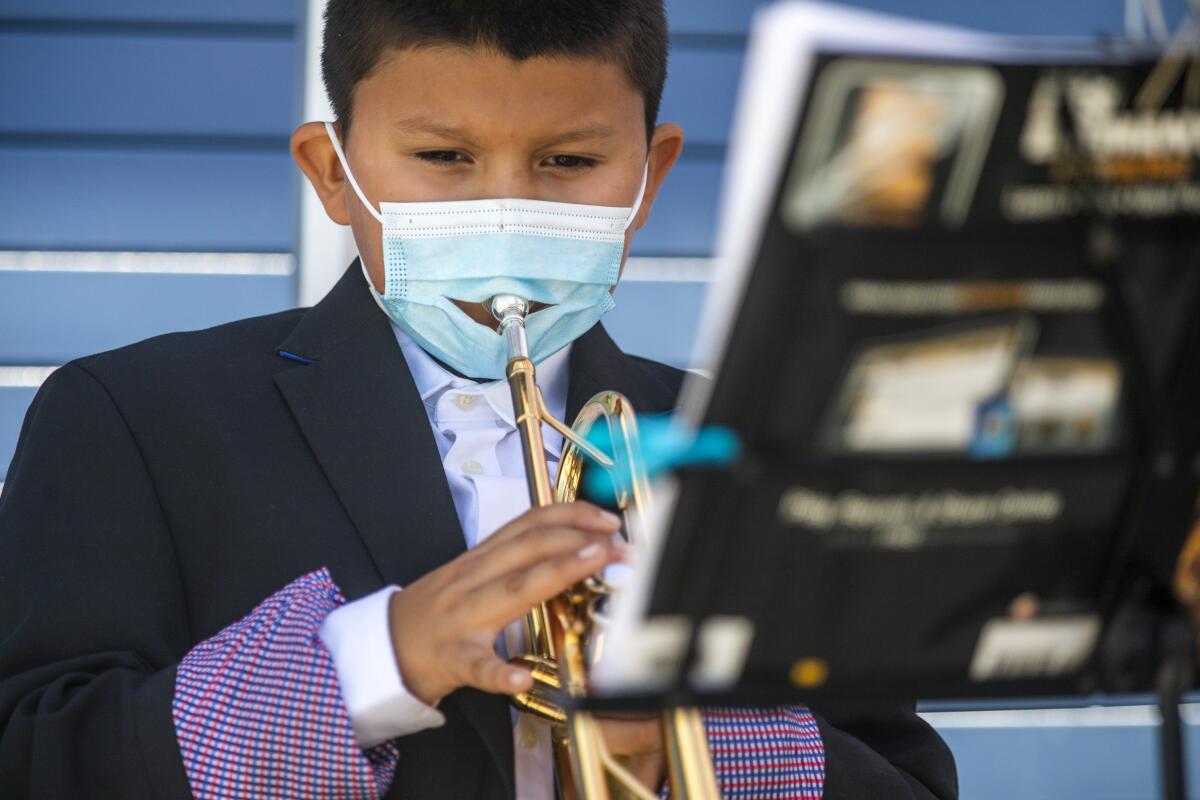A ballot-box budgeting proposal for arts education? Let’s stop it before it starts

- Share via
Beware of ballot measures that offer something for nothing. Especially when they involve the expenditure of public money. Even when the goal is a good one. Remember: Government budgets are finite. Shelling out money to Peter is generally going to put Paul in bad shape.
No matter how many times this gets repeated, though, proposals that dedicate taxpayer money to one pet project or another continue to make their way onto state and local ballots and often win.
The Los Angeles County Board of Supervisors put a charter amendment on the November 2020 ballot to permanently designate minimum funding levels for social service programs, and it passed handily. California voters have passed cigarette taxes, most recently in 2016, that use proceeds to fund health programs and early childhood education.
It’s called ballot-box budgeting, and though these propositions almost invariably call for spending on something popular, they are especially problematic when they don’t raise any new money but earmark existing revenue. It’s a sleight-of-hand move that promises something really great without having to spend any additional money for it.
But that money has to come from somewhere, and typically that means taking it from a government’s general fund, which is also used to pay for a variety of other important services. While once in a great while the benefit of budgeting by ballot outweighs the negative, it’s best to avoid tying elected leaders’ hands so that they have the ability to use money where it’s most needed during hard budgetary times.
In that vein, former Los Angeles schools Supt. Austin Beutner is launching an initiative for the November 2022 ballot to spend more funding on arts education in the public schools, with the support of rapper and music entrepreneur Dr. Dre and other luminaries in the entertainment world. And guess what? With no increase in taxes!
The initiative would set aside an amount equal to 1% of Proposition 98 (another ballot-box budgeting proposition passed in 1988 to fund public K-12 schools and community colleges) from the state’s general fund to pay for music, drama, fine art, creative writing and other art endeavors. To be clear, the money wouldn’t be taken from regular school funding; it would be an addition and taken from the state’s general fund.
This is a bad idea. Right now, state coffers are flush. But when revenue becomes tight in the future, the governor and Legislature need as much flexibility in the budget as possible to make sure that critical needs are funded. What happens if the student population plummets in future years while the number of disabled elderly people grows?
What’s more, Beutner’s proposed initiative wouldn’t necessarily mean students and families would see any difference in arts education. Schools would have to use the new money on arts, but they could take some of the money they spend on arts now and use it for something else. All of which essentially means that this a back-door way to increase school funding.
The teachers and leaders of individual school districts know what their students most need and should be free to make those decisions. That’s why Gov. Jerry Brown did away with most so-called categorical funds for schools — money they had to use for specific programs such as anti-smoking instruction or class-size reduction in early grades. These days, priorities might be mental health services or intensive tutoring.
The ballot initiative’s language has been filed and signatures must be gathered by late April in order to qualify in time for the November 2022 ballot. But Beutner — whose name is floated as a possible contender for higher office — should do the taxpayers and state lawmakers a favor by ending this campaign now.
More money for arts education would be great, and parents should urge their local school boards to make it a higher priority, but not at the expense of every other important state expenditure.
More to Read
A cure for the common opinion
Get thought-provoking perspectives with our weekly newsletter.
You may occasionally receive promotional content from the Los Angeles Times.






